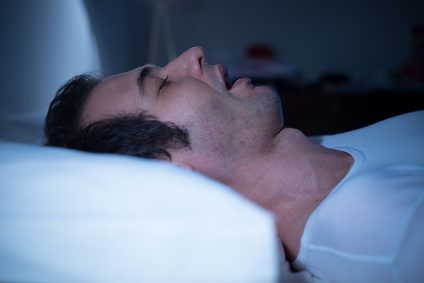Sleep Chest Pain – Causes of Pain in Chest When Asleep
Chest pain is usually a cause for concern as the vital organs (heart and lungs) are located in the chest cavity. It is not always due to serious or life-threatening condition. Sometimes chest pain may be due to anxiety or sore muscles that lie on the chest wall. While the pain in these cases can be distressing, there is no immediate medical risk. However, there are instances where chest pain may be due to serious conditions and should therefore not be entirely ignored.
Why does sleep cause chest pain?
Awaking with chest pain is naturally concerning for most people. The thought of a heart attack is of immediate concern to middle age and older adults. It is not a myth that many heart attacks occur in the early hours of the morning and there are specific physiologic reasons for this trend. Similarly less serious conditions like GERD (acid reflux) tends to worsen during the same period in the morning and often disturbs sleep. It is therefore important to differentiate between cardiac chest pain and non-cardiac chest pain.
Although chest pain is a symptom of several conditions involving the chest cavity, it can sometimes arise with problems outside of this region. For example, gallstones can cause lower chest pain and even shoulder pain. Therefore it is important to consider other symptoms that may accompany the chest. The pain and these other symptoms may also ease or worsen during sleep.

When we sleep, fluctuations associated with the sleeping postion and the circadian rhythm can trigger or worsen certain conditions which may present with symptoms like chest pain. Sometimes this is not related to sleep but specifically due to the posture, as is the case with chest pain when lying flat. The circadian rhythm is essentially the 24 hour biological clock and various organs become more or less active at certain times within this cycle. There are various other reasons why chest pain or other symptoms may appear or worsen during sleep.
Causes of Sleep Chest Pain
A host of different conditions may present with chest pain and specifically chest pain that tends to worsen while sleeping. The more common causes have been discussed below. It is often difficult to differentiate between these conditions, especially with the two most common causes – acid reflux and angina or a heart attack. Therefore it is important to correlate the chest pain with other symptoms and seek medical attention to confirm the underlying cause.
Acid Reflux
One of the more common causes of sleep chest pain is acid reflux or gastroesophageal reflux disease (GERD). This is a very common upper digestive condition where the stomach acid flows backward into the esophagus. It usually presents with a burning chest pain (heartburn). The pain may worsen when sleeping due to lying flat which allows easier backward flow of stomach acid as well as increased stomach acid secretion which occurs in the early hours of the morning as part of the circadian rhythm.
Angina
Angina pectoris is chest pain that arises from the heart and is associated with coronary artery disease. This occurs when the coronary arteries that supply blood to the heart muscle becomes narrowed. As a result there is heart muscle injury and chest pain usually during stress and physical exertion when the heart has to work harder. In some types of angina, like unstable angina and variant angina (also known as Prinzmetal angina) specifically, the chest pain worsens at night and in the early hours of the morning.
Heart Attack
A heart attack (myocardial infarction) is where a portion of the heart muscle dies due to a blockage in the coronary artery. Apart from chest pain in heart attacks, there may also be arm pain, jaw pain, difficulty breathing, excessive sweating and dizziness. Heart attacks can occur at anytime in the day but one of the more common time periods when it happens is in the early hours of the morning, between 1AM and 5AM. This is associated with changes in the sleep cycle and autonomic nervous system as well as fluctuations in the circadian rhythm.

Pulmonary Embolism
Pulmonary embolism is a condition where an artery to the lung becomes blocked with a blood clot. This blood clot usually arises in the leg (deep vein thrombosis or DVT), breaks away and travels to the smaller pulmonary artery which it may then block. This can be life threatening without prompt medical attention. Although it may occur at any time of the day, it tends to be more common in the early hours of the morning. People who are immobile for a long time tend to be at a greater risk of a pulmonary embolism.
Pericarditis
Pericarditis is a condition where the lining around the heart becomes inflamed usually due to injury or infection. The chest pain in pericarditis tends to worsen when lying down and eases with sitting upright. Therefore the problem is not due to sleep but rather due to the lying position that is the natural sleeping position. However, any increase in heart activity like during certain parts of the sleep cycle or with nightmares could also worsen the chest pain.
Pulmonary Edema
Fluid in the lungs is known as pulmonary edema and occurs with lung, heart and kidney diseases among other conditions. Although this does not typically cause chest pain, the shortness of breath in this conditions tends to worsen when sleeping. It results in labored breathing at times, depending on the extent of the fluid accumulation. Sometimes a person can incorrectly describe this shortness of breath and strained breathing as chest pain.
Pleuritis
Pleuritis is inflammation of the lining around lung usually due to an infection. Chest pain is a common symptom and when there is an effusion (fluid around the lungs) then this pain may worsen when lying flat. However, the pain often eases to some degree when lying on the affected side. Sometimes the opposite may occur where the pain appears to be more intense when lying on the unaffected side.
Chest Wall Pain
Injury, strain or disease of the chest wall (skin, muscles, bones) can also cause chest pain. This chest wall pain tends to worsen when breathing in deeply or with movements of the upper torso. Lying on the chest when sleeping can aggravate the pain due to the pressure of the torso weight. Sometimes infections like shingles may also be responsible for chest pain and tenderness.
Anxiety
Chest pain is a common symptom in anxiety attacks. Most of the time anxiety chest pain is not due to any disease or disorder of the chest organs. Should an anxiety attack occur or worsen when asleep then a person may experience chest pain. This may occur with nightmares as well, and a person may awake with chest pain. People with heart disease may experience chest pain with a nightmare due to the strain on the heart as it beats faster.





